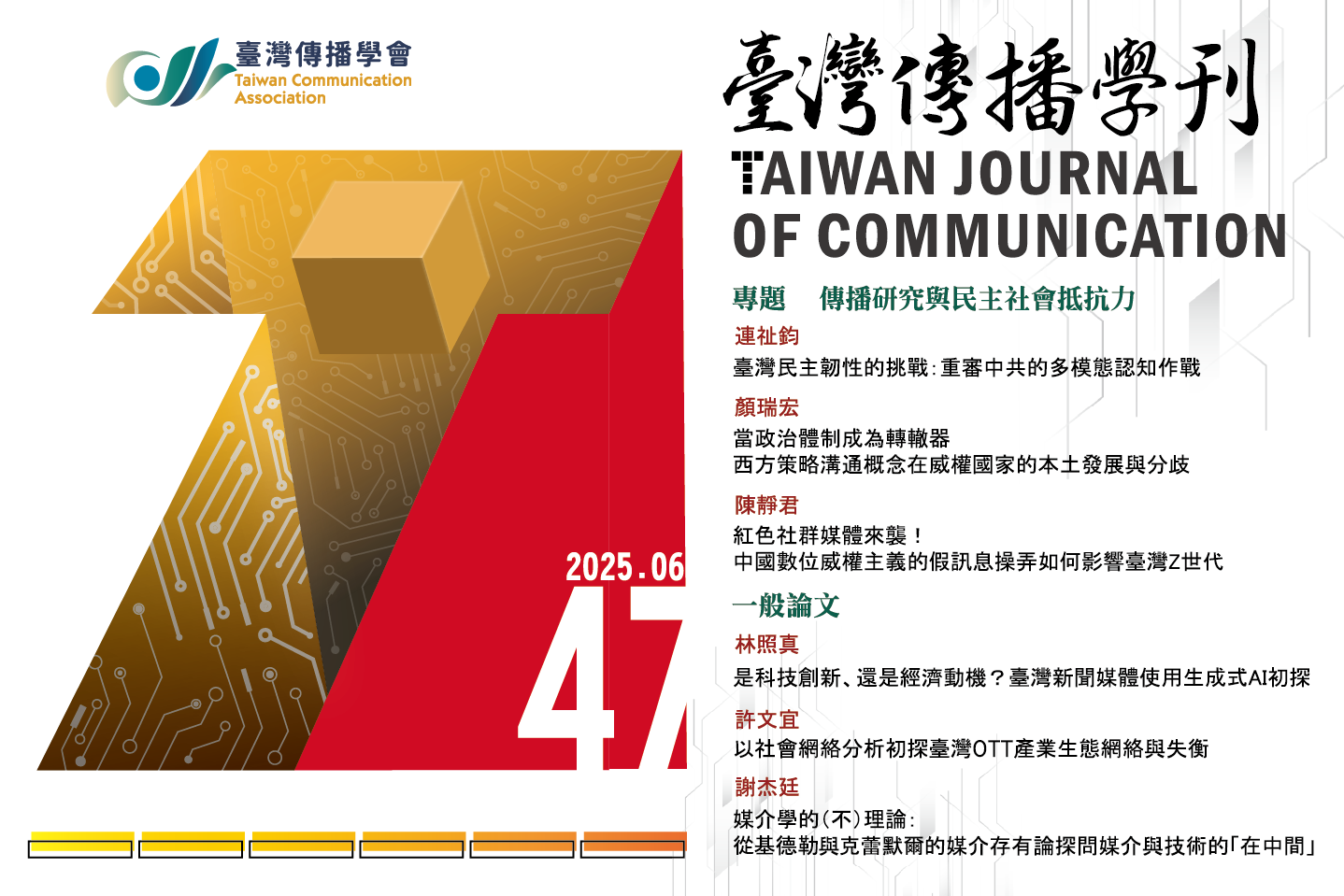 閱覽人數: 747
閱覽人數: 747
June
2025
No. 47
傳播研究與民主社會抵抗力
Communication research and the resistance of democratic societies頁數:1 - 60
作者(中)
連祉鈞
作者(英)
Jr-Jiun Lian
關鍵詞(中)
水平傳播、民主韌性、多層次語言學分析、多模態框架、政治傳播學、認知作戰
關鍵詞(英)
horizontal transmission, democratic resilience, multidimensional linguistic analysis, multimodal framework, political communication, cognitive warfare
中文摘要
近年臺灣頻頻遭中共多模態認知作戰侵襲,手段之繁複已逾越傳統學界對認知戰之界定。本文引介政治水平傳播之多模態框架,補充學界對新興認知戰手段與概念之認知,並闡明其因涵蓋惡意的「社會破壞型技術」,故不屬於言論自由保障之範疇。本文從跨領域視角探討臺灣近年應對認知作戰之理論與實踐,圍繞三大核心關懷:(1)釐清認知作戰的多模態框架、(2)供理論方法與示例實際分析、(3)探討臺灣本土民主韌性理論的可能應對之策。
英文摘要
In recent years, Taiwan has been consistently targeted by cognitive warfare launched by China, using tactics that demonstrate a level of complexity beyond traditional academic definitions. This paper examines cognitive warfare through a multi-modal framework, integrating the concept of horizontal dissemination from political communication theory to expand scholarly understanding of these strategies. It also asserts that since cognitive warfare includes “malicious socio-disruptive technologies,” such tactics should not be categorized under the rights protected by free speech. This study extensively examines the theoretical and practical frameworks for countering cognitive warfare, focusing on three primary concerns: first, the clarification of the multi-modal cognitive warfare framework; second, analyses of cognitive warfare from both theoretical and practical perspectives; and third, proposing possible response strategies rooted in Taiwan’s democratic resilience.